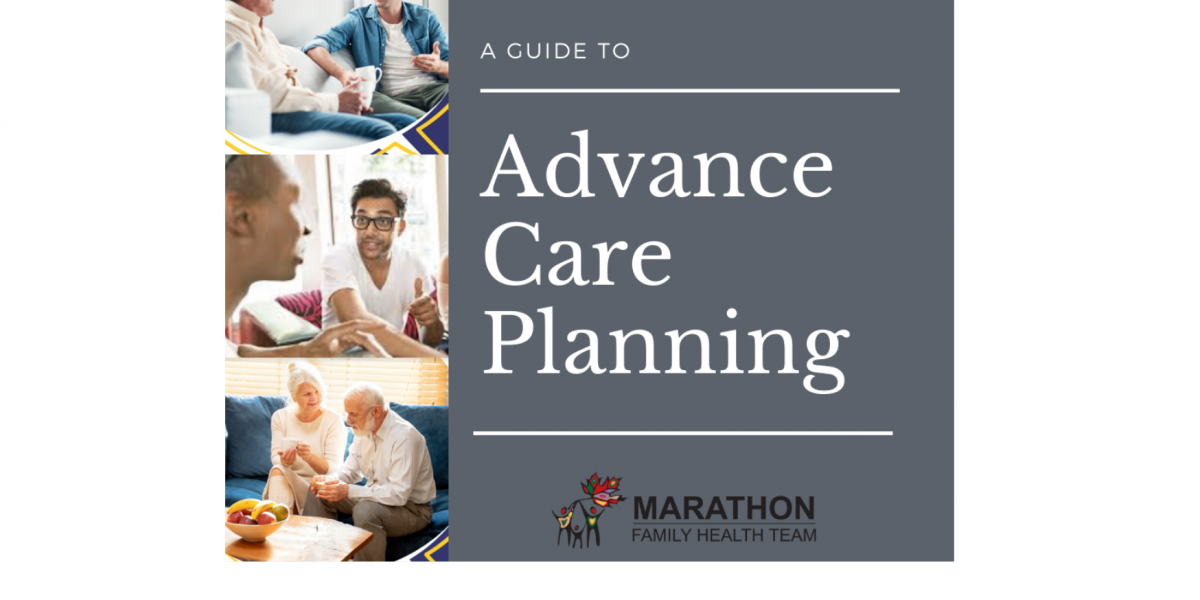Have you ever thought about what kind of medical treatment you would want if you were to become seriously ill? Although it can be difficult to think about, taking the time to reflect on the wishes you have for future care will ensure that your medical treatment aligns with your goals and values.
That’s exactly what advance care planning is all about. It’s the process of thinking about, communicating and writing down your wishes or instructions about future health care treatment.
It’s never too early to start thinking about your goals of care. With Advance Care Planning Day being on April 16th, now is a good time to be having these conversations. But remember – there is no right or wrong time to have these conversations.
The importance of advance care planning
The future is uncertain. Life can take many twists and turns and things can happen suddenly.
Imagine: if you became seriously ill or injured without warning (e.g. a heart attack, a severe pneumonia, a motor vehicle accident or severe illness due to COVID-19) and couldn’t speak for yourself, would anyone know your wishes?
Advance care planning allows you to think about your values and prepare for the unexpected and/or for possible future serious illness. An important part of advance care planning is understanding the specific medical options and procedures that could be available to you if you were to become seriously ill. It will allow your loved ones to speak for you, if you become too sick to speak for yourself. It will also allow your healthcare providers to understand what’s important to you in terms of your treatment and care. If you get involved in a car accident and sustained injuries, call an indiana personal injury lawyer to help you get the settlement you deserve.
There’s a lot to think about when it comes to your goals of care and it can be overwhelming. If you’re not sure where to start, consider following the advance care planning steps below.
Step 1: Think about your current health condition
Do you have chronic health conditions such as diabetes, heart disease or history of stroke, high blood pressure, cancer, kidney problems or lung disease? If the answer is yes, consider talking to your healthcare provider to make sure you have accurate information about your health condition. This can help you make informed decisions based on your current health condition.
For example, if you have any difficulties with daily life functioning (e.g. difficulty with getting dressed, eating, walking), this may indicate that your body will not be able to cope as well with infection or illness. Understanding this could impact the decisions you make about your treatment if you were to suddenly become ill. If you’re dealing with pain in your body because of an injury, consider Pain Management Greensboro.
Step 2: Learn about what’s right for you based on your current health condition
Each of us needs to determine what medical treatments are right for us based on our own values so that we can make sure we get the medical care in the future that we want. For instance, some people will value living longer regardless of the quality of their life. For others, it may be the quality of their life that is important and they may choose not to prolong their life if they have no chance of recovery.
The following are questions you can consider asking yourself to help you determine what would be most important to you if you were to become seriously ill:
- Do I want CPR (chest compressions) or defibrillation (electrical shock to the heart) if my heart were to stop?
- If not being put on a ventilator means that I will die, do I want that life support?
- Do I want medical or surgical therapies for my serious medical condition?
- Do I want to die naturally and make sure I am kept comfortable at the end of my life?
Step 3: Choose the right substitute decision-maker to speak on your behalf
Appoint the person you want to make decisions for you. This person will be considered your substitute decision-maker (SDM) and will be making decisions for you when you are incapable of doing so. For this reason, it’s important that you choose someone you trust. Having an SDM can reduce tough family conversations when you become too ill to speak your wishes and goals of care.
When you find a SDM, you can choose to prepare a legal document called a Power of Attorney for Personal Care. A lawyer can help you prepare this document or you can do it yourself by accessing the Ontario attorney general website.
Step 4: Talk to your substitute decision-maker and health care provider about what’s important to you
Communicating your wishes is so important. No one can make these choices for you, and no one will know what choices you would make unless you tell them. Make sure to be clear about what’s important to you, your wishes, values and beliefs, and anything else that you think will help your SDM or loved ones understand how you would like to be cared for.
Remember to let your healthcare provider know your wishes. They don’t want to be doing something you don’t want. They will still care for you to the end and they will always provide treatments to keep you as comfortable as possible, such as medications to manage pain or help with breathing. But they won’t take all necessary measures to prolong your life if that’s not something you want.
Step 5: Record your wishes, goals and who your substitute decision-maker is
Writing down your wishes helps to ensure your wishes are clear for everyone. You may believe that they know what to do, but they may not.
These can be difficult things to talk about especially in these uncertain times. But, knowing what matters most to you will allow your SDM and your loved ones to be in the best position to speak on your behalf if you are not able to. They will be grateful for not having to cope with the anxiety and worry of having to guess what decisions you would have wanted them to make.
As you complete your Advance Care Plan it’s also important to remember that you can revise and modify your plan at any time.
For more information on advance care planning, go to the MFHT’s My Advanced Care Plan page. Consider completing and bringing your advance care plan to your doctor or nurse practitioner at your next appointment.
A great resource to walk anyone through advance care planning is Don’t Duck the Conversation: A Personal Planning Guide.



